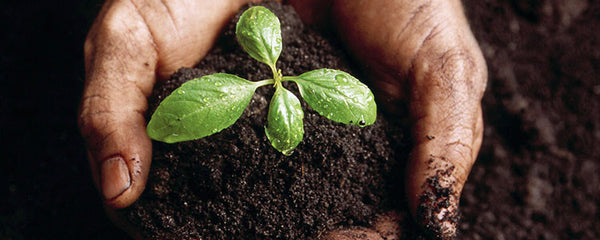
Benefits of compost for the planet
With recycling becoming a daily occurrence and a huge contribution to making our planet a healthier place, there is still an issue with a large proportion of our landfills being organic (food) waste. This issue is something that can be addressed by composting our own organic waste at home- a solution that will benefit our environment, and also our economy!
What is composting, and how do I go about it?
Composting is nature’s process of decomposing natural, organic products we no longer need. There is no better way to give nutrients to your garden than compost, so it’s well worth starting your compost pile as soon as you can. To start your compost pile all you need is waste and a space within your garden, suitable for a composting bin or pile. You’ll then need the right balance of waste, and carbon rich or nitrogen rich ingredients to add/mix with your organic waste. For example, if you were adding flower cuttings to your compost, you would need to add chopped wood stems to ensure the composting process occurs properly. It is worth knowing the ratios of carbon, nitrogen and your organic waste so to ensure correct decomposition in your compost pile.
Composting on bare earth is the most beneficial method for your garden. It means that organisms like worms can aerate the compost and take nutrients with them around your garden and your flowerbeds – a natural and low maintenance way to enhance and benefit your garden.
Building a compost pile
To start building your compost pile, gather and lay twigs or straw on the ground a few inches high to ensure efficient drainage and aeration. As your compost pile grows, you need to ensure that your organic waste includes both wet and dry components and that each layer alternates between the two.
Adding manure will speed up the decomposing process. Green Manure can be composed of clover, buckwheat, grass clipping to name just a few ingredients. Alternatively, any other source of nitrogen can be added to your pile to speed up the process naturally.
Maintaining your compost pile
Keeping the compost pile moist is very important, your compost should be moist, not soaked, but generally you can let the wet British weather do its job! Covering your compost pile will help ensure that it retains moisture. You can cover your pile with almost anything – from scrap wood and plastic sheets to carpet cuttings.
To help keep the decomposing process ticking along, it is important that you give your compost a quick turn every few weeks. This can be done using a pitchfork or shovel. Turning your compost will inject oxygen into the layers of organic components, aerating the compost and speeding up the process. If you choose to layer your organic waste with straw then this is a step you can most likely miss!
The benefits of properly building your compost pile
When you have a large compost pile and you consider your compost to be established then you can throw in waste and mix without having to manage the layering process. This process really is that easy to follow and the benefits are huge.
Your garden will be gleaming from the compost process. Adding compost made from organic materials to your garden improves moisture retention, provides slow-release nutrients and reduce pesticide problem. Healthier plants grown from healthier soil are a huge – and visible -bonus for all the keen gardeners out there. Composting also helps you save money on nutritious soil from the garden centre, as you already have all the nutrients your garden needs readily available.
Our environment will also reap the benefits from your compost pile. Organic waste put in to landfills injects a dangerous gas, called methane into our planets atmosphere. By keeping our organic waste from landfill and putting into our own compost piles and gardens we are dramatically reducing our carbon footprint. Compost actually helps reduce soil erosion and can help to destroy volatile chemicals found in the air.
The latest environmental projects, such as reforestation, wetland restoration and habitat improvements also use compost to enhance and improve soil conditions. Using compost also makes these projects cheaper to complete.
Composting doesn’t just benefit the environment
Believe it or not, composting has also been proven to benefit our economy. By composting our organic waste, instead of putting it into landfills, we are reducing the need for expensive landfill processes. The landfill process even costs more than the recycling process, and, of course, the composting process. Using compost in your own garden also reduces the need for fertilisers and pesticides. These products use petroleum-based chemicals, and therefore they rely on fossil fuels to be made; making them expensive and unfriendly to our environment. In addition to all this, using your compost for growing your own veggies is not only a healthy alternative to fertiliser but also helps reduce your food-shopping bill!
Having your own compost system is not only a valuable tool for your garden – and a great personal achievement – but his simple, cost effective, environmentally friendly system is one of the best things you can do to help our planet today.

Post a Comment!